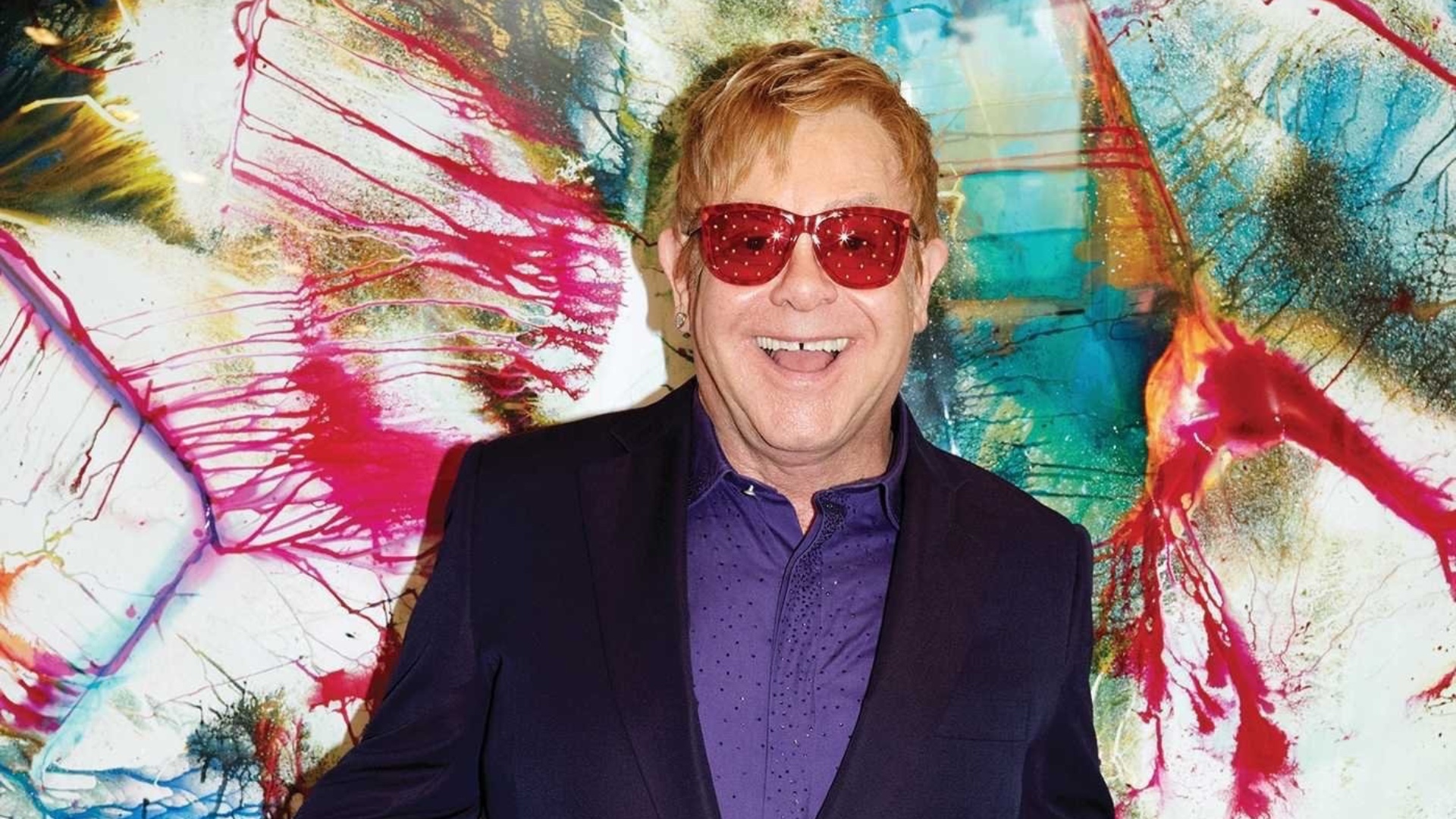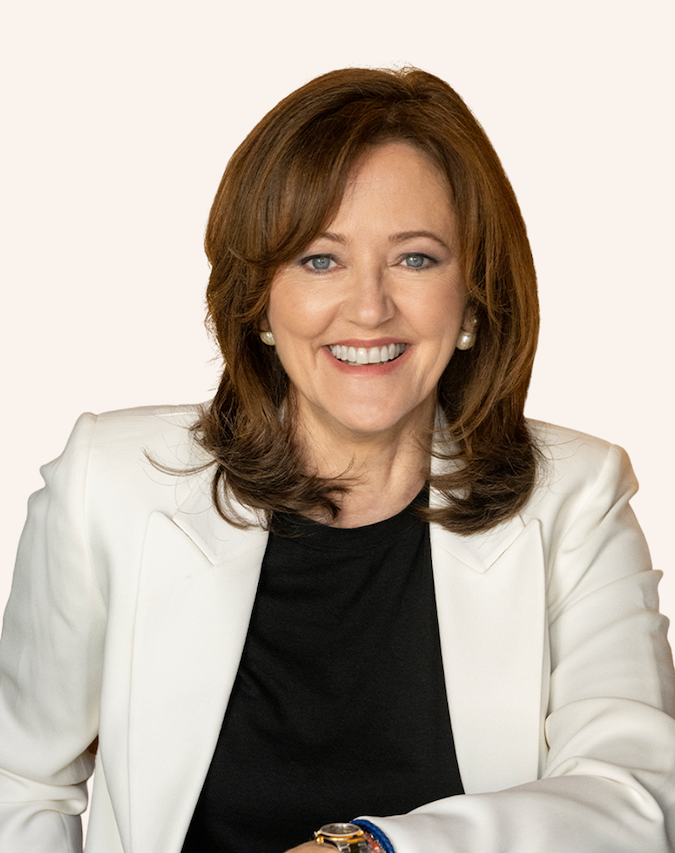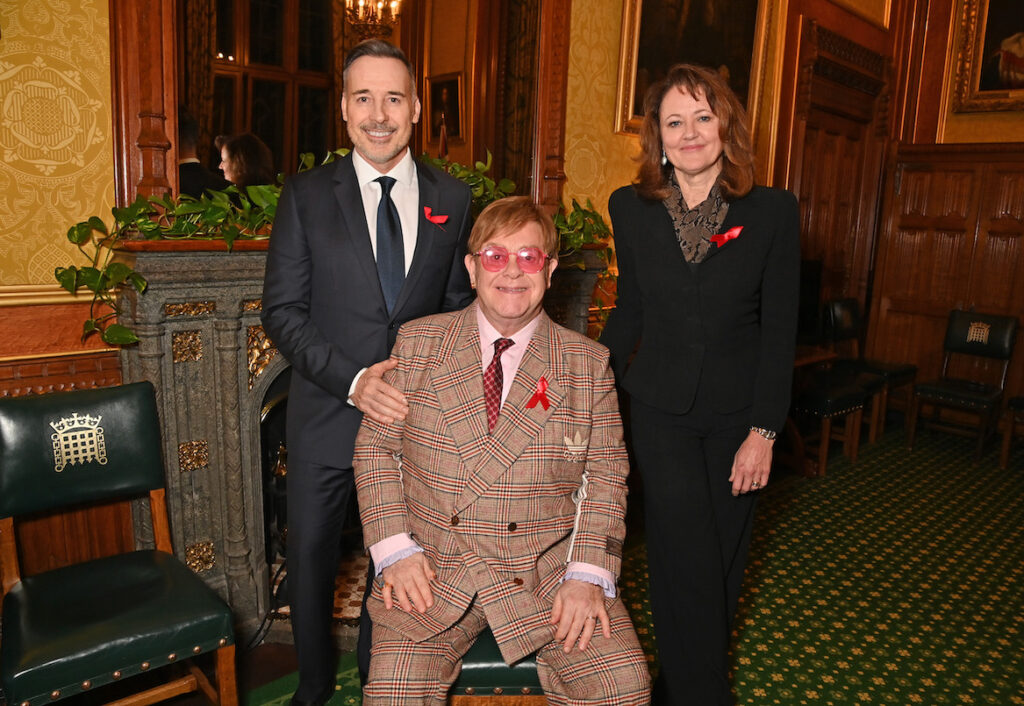Elton John AIDS Foundation launches Speak Up Sing Out campaign – giving you the chance to meet the Rocketman himself in NYC
Exclusive: EJAF CEO Anne Aslett speaks to Attitude about the Foundation's new 'Your Song'-inspired social media crusade against LGBTQ+ discrimination and stigma

Anne Aslett, CEO of the Elton John AIDS Foundation, has revealed all about the nonprofit’s new Speak Up Sing Out social media crusade in an exclusive interview with Attitude.
The campaign – which celebrates the authenticity of LGBTQs and allies, and those who have helped them on that journey – asks people to share a video of themselves singing the final verse of ‘Your Song’, while also naming the individual who has particularly supported them and helped them be their true self.
“The winner gets to come with a friend – possibly the friend they nominated in their post – to meet Elton and David [Furnish] in New York!” Anne tells Attitude. “They’re really excited and looking forward to meeting them!”
Speak Up Sing Out campaign – how to enter
To join the movement and enter for a chance to meet Elton and David, follow these simple steps on Instagram.
1) Post a reel (vertical video) singing the below lyric from ‘Your Song’ and nominate the individual who has inspired you to embrace your true self.
2) The lyrics are “I hope you don’t mind, I hope you don’t mind, that I put down in words how wonderful life is while you’re in the world [then state your nomination’s name!].”
3) Tag a person in your caption who has always supported you to be your authentic self.
4) Use the hashtag: #SpeakUpSingOutGiveaway.
5) Follow the Elton John AIDS Foundation on Instagram: @ejaf.
The campaign celebrates EJAF’s achievement of reaching $100 million towards The Rocket Fund’s $125 million goal. Speak Up Sing Out was designed to drive support and engagement to create lasting change for the LGBTQ+ community as EJAF works to raise the final $25 million.
In a climate marked by a surge in anti-LGBTQ+ legislation in the US, with 510 such laws introduced in 2023, and 75 enacted, the campaign emerges as a beacon of solidarity and action.
Notable friends of the Foundation such as Kristin Chenoweth, Andrew Rannells, Michaela Jaé Rodriguez, and Vanessa Williams have already lent their support, encouraging their followers to participate.
Here, Anne reveals all about the campaign, the latest goings on at EJAF and Elton’s boundless enthusiasm for the Foundation’s work.
Hi Anne – tell us more about Speak Up Sing Out…
It’s a campaign we launched yesterday for Pride month. It’s about getting people to champion the person in their lives who has enabled them to be their authentic selves. We had a wonderful supporter called Kevin Xu who is donating $10 for every post [up to the value of $25,000], so it would be really wonderful if your readers were prepared to join the campaign and post on Instagram!
Who inspired the Speak Up Sing Out campaign?
Elton inspired it – last year, we did a campaign for Pride called ‘Let Your Inner Elton Out’, which was encouraging people and celebrating people to be their authentic selves. It’s a space that’s becoming increasingly squashed in the world that we live in. People are torn down, vilified, criminalised and shamed for being their authentic selves, so we really wanted to champion that. This year, what we wanted to do was talk about the people who helped someone be their authentic self. We all need those special people in our lives, who see us for who we really are, and tell us that we’re great. That’s we’re enough, that we’re wonderful. There didn’t seem to be a better way to do that than to use the lyrics of ‘Your Song’.

Do you have any special memories of ‘Your Song’?
So many, actually. Because I’ve heard it many, many times. One that really stands out: because I was really young when that came out, I remember my middle brother, who was a bit older than me, playing it to me, and saying: “Don’t you think this is a beautiful song?”
Who would you dedicate your video to?
If that brother was still around, I’d be dedicating it to him! He really helped me to understand what being your authentic self is all about. But this year, I’d dedicate it to a friend of mine called Odilon, who has been through a really, really tough time recently, and has had to dig very deep to find his own self-esteem and confidence. He’s really shown me what that is all about. I’d do anything for him!
The campaign seeks to dismantle anti-LGBTQ+ discrimination amid rising laws in the US and around the world. Is there a specific law that’s shocked you the most?
The protection of the laws in Uganda which are so draconian, in the sense that not only is it criminal to be gay, it’s criminal not to report on someone who you suspect of being gay. They have a statute on so-called ‘aggravated homosexuality’, which means, if you have HIV, even if you don’t put anyone at risk, that’s subject to the death penalty. I think that’s about as vicious and cruel and inhumane as it gets.
What policy changes would the EJAF like to help push through via campaigns like Speak Up Sing Out?
A lot of it is around decriminalisation. It’s still a crime – same-sex relationships are still a crime in over 65 countries around the world. A dozen of them punishable by death. We are working with partners like the Human Dignity Trust to try and overturn those laws. Some of them are getting rid of bad things, some are pushing for expanded access to treatment to care. A big piece for us at the moment is PrEP. There are, for example, no local authorities in this country that have more than five women on PrEP. Which seems extraordinary. If you look at the States, if you’re white, the estimation is that 94% of white people who need access to PrEP are getting it. When you look at the Hispanic and Latinx community, it drops to 25%. For Black Americans, it’s 13%. So we’re pushing very hard, both in terms of the projects we fund and policies in both the UK and the US, and more broadly around the world, to make PrEP, which is such an incredible tool, available and accessible to everybody, not just certain parts of the population.
I was just thinking this morning. Why can’t I just pop into a pharmacy and pick up some PrEP?
In the UK, we did a project on opt-out testing, which we did in Lambeth, Southwark and Lewisham. We kind of proved that you could massively increase the number of people who [you could help who were found to have] undiagnosed HIV. People in their 80s who had no idea and had been through the health service multiple times. That’s now been expanded to every high-HIV prevalence A&E in the country; 86 sites, which is fantastic. It also now includes Hep B and Hep C. So the next piece of the puzzle, really, is PrEP. We are looking at exactly the things you talked about. Why can’t you just go and collect PrEP from your pharmacy? We’re looking at what they call ‘direct-to-consumer’ models, where you do telehealth, have a consultation online and actually get a HIV test and all the other thresholds that you need to pass – the liver function, the kidney function – could that be delivered directly to your home? Why do people have to wait weeks or even months for repeat prescriptions of PrEP? Why can’t that just be fast tracked? There’s a whole range of different ways. For women particularly, who very often don’t even have PrEP discussed with them, because there’s this paradigm that PrEP is only for gay men; the guidelines have only just been expanded. The women’s hubs and other entry points through the NHS [are] where we can start to have those discussions so people can use this simple tool to protect themselves.

You’ve been CEO of the Foundation for 20 years. How has it changed in that time?
Oh my gosh – when I joined, it really was very UK-focused. It was largely about helping people die with more dignity and less pain, as tragic as that sounds. Then, obviously, antiretrovirals came along. We massively expanded our work in the UK and outside the UK, in Sub-Saharan Africa, South East Asia and Eastern Europe. ‘OK, how can we get these extraordinary, miracle drugs to people in really challenging settings?’ How do you make sure that, where there isn’t a hospital nearby, or even a clinic, you can use people in the community, and the workforce, such as it is, to get those drugs to people? Then we had mother-to-child transmission – we were one of the first organisations that really pushed on expanding prevention of mother-to-child transmission for HIV and paediatrics. Now, the cost of those drugs has fallen really dramatically. We have great testing. We have prevention in the form of PrEP. The challenge now is about this lingering stigma and discrimination that sits around HIV and is being codified into laws and policies around the world by more right-wing governments and faith-based organisations in society, to sort of demonise the LGBT community, particularly, and stopping them from accessing treatment. The tragedy is, it’s stopping them, and it’s also stopping the broader community, because it’s demonised and legislated against in so many places.
What other plans do you have to raise the remaining $25 million of the $125 million Rocket Fund?
The Rocket Fund is designed to turbocharge all of our efforts around the world. We’re just over five years away from the United Nations Sustainable Development Goal to end AIDS. 2030 is the deadline. Because of so much unrest and anger and division around the world, and the stigma I was talking about before, we really felt the need to amp up. We launched it in 2022. Last year, the money from the Rocket Fund enabled us to triple our reach. We reached almost 290,000 people. The remaining $25 million is a combination of events that we do; we do a big event every year for the Oscars. We have wonderful corporate partners. We’re working with Walmart in the States. We had a campaign with Charlotte Tilbury last year. We’ve got more to come. And then we get a lot of support from other trusts and foundations, and from governments.
How can individuals get involved with and support EJAF?
We’d love everybody to post for Pride month in the Speak Up Sing Out campaign. Follow us on our social media. Share your views. Donate through our website. Keep these issues part of the conversation. We’re trying to remove this exceptionalism and stigma around HIV.
What are Elton and David like to work with?
Elton has, and I’m sure you know from his public appearances, a really, really wicked sense of humour. A really naughty sense of humour. He’s always great fun. And the other thing I’d say is, he’s talked and David’s talked about doing something bigger than yourself. In the case of Elton John, that’s quite a tall order. I’m always struck, when we work on projects and discuss the things we want to do in the Foundation, they really live it, and god knows there’s a lot of other things going on in their lives. That’s the thing that sticks with me. The energy and enthusiasm for continuing to do something, and to take your time and your talent and energy to do something. I don’t know whether that’s the case for all celebrity-founded charities. But it’s really what’s kept me at the Foundation, because it’s intoxicating.
For more information about Speak Up Sing Out, visit the Elton John AIDS Foundation website.
